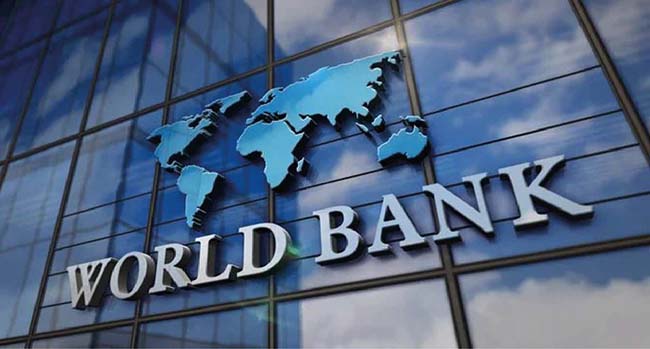Bangladesh’s GDP growth may decline to 3.8% in the current fiscal year: IMF, according to the World Bank 4.1%. Following the International Monetary Fund (IMF), the World Bank has reduced its GDP growth prediction for Bangladesh. The World Bank predicts that GDP growth would slow to 4.1% in the fiscal year 2024-25. Earlier, in June, the group expected a 5.7% growth rate for the fiscal year.
Bangladesh’s GDP growth may decline: The new projection was released on Friday in the World Bank’s publication “Global Economic Prospects.” According to the survey, political uncertainty has interrupted economic activity in Bangladesh since the middle of last year. Investor confidence has weakened, resulting in a lower growth expectation in the face of such conditions and policy uncertainty.
The World Bank has highlighted additional difficulties that are contributing to Bangladesh’s economic decline. It noted that fuel shortages, supply bottlenecks, and import restrictions had hampered industrial activity. Inflationary pressures have grown, with rising prices reducing people’s purchasing power and slowing growth in the services sector.
While other South Asian countries have seen inflation fall, Bangladesh continues to experience high rates. To combat inflation, monetary policy has been tightened even further. However, inflation in Bangladesh is expected to overshoot the target this year as well. Although foreign exchange reserves have increased in certain South Asian countries over the last year, they have decreased in Bangladesh and the Maldives, indicating that currency markets remain under pressure.
According to the World Bank research, if Bangladesh’s major trading partners, particularly the United States and European countries, experience slower economic development and domestic demand, exports will suffer. The United States is Bangladesh’s greatest single export destination, with roughly half of overall goods exports going to Europe.
Last month, the IMF updated its GDP growth projections for Bangladesh. The agency estimated that GDP growth could slow to 3.8% in the current fiscal year. Previously, in October, the IMF forecasted 4.5% growth. Meanwhile, given the overall scenario, the interim government has opted to cut the GDP growth target. The target for GDP growth in fiscal year 2024-25 has been cut to 5.25%. The current fiscal year’s budget sets this aim at 6.8%. Abul Hassan Mahmood Ali, the Finance Minister of the Awami League government, stated this aim in his maiden budget speech.
According to a World Bank report released yesterday, Bangladesh has somewhat decreased the GDP growth prediction for the entire South Asia area this year. While other countries’ growth expectations have grown, Bangladesh’s has decreased. The primary cause for this is policy uncertainty in Bangladesh.
According to the World Bank, due to increased political instability, investment and industrial activity in Bangladesh are projected to remain slow in the foreseeable future. GDP growth is expected to return to 5.4% in the fiscal year 2025-26, nevertheless. This is possible if political stability is restored, financial sector reforms are implemented, the business environment improves, and commerce expands. A drop in inflation would also assist to boost private consumption.
However, the World Bank predicts that per capita income growth in Bangladesh and other South Asian nations will remain low in the 2019 fiscal year. According to the research, South Asia continues to have significant unemployment
Bangladesh’s GDP growth may decline… Bangladesh’s GDP growth may decline.. Bangladesh’s GDP growth may decline.. Bangladesh’s GDP growth may decline


